Power To The People
We’ll be looking at the next instalment of Peter Berrie’s fascinating insight into ‘The Toon Improvement Bill’ later in this series. Now we turn to the songs in our next show with a strong connection to the Civil Rights Movement. Here is part 2 of ‘Meet the Songs’…
Sam Cooke – A Change is Gonna Come.
The African American Civil Rights Movement.
The inspiration for writing this song came from a culmination of events in Sam Cooke’s life. The most notable of those was when Sam and his crew were refused rooms in a Louisiana motel. This establishment was later found to be for ‘whites-only’. It was 8th October 1963 and Cooke phoned the Holiday Inn North to book a room for him and his wife. When they arrived, he and his entourage were told that there were no rooms available. A verbal exchange ensued between the crew and the hotel staff which eventually led to their arrest for disturbing the peace.
That same year, Cooke was incredibly moved by Bob Dylan’s “Blowin’ in the Wind”. It wasn’t only for its importance of highlighting racism in America. It was also that it was written by someone who wasn’t black. This coupled with the motel incident led Cooke to write a song telling his story, relating to the Civil Rights Movement and the struggle African Americans faced every day.
The lyrics speak for themselves, “It’s been a long time coming, but I know a change is gonna come.”

Joan Baez – We Shall Overcome.
Gospel song to protest song!
It is widely thought that this song came from a hymn published in 1900 called “I’ll Overcome Some Day”. The modern version is a gospel song which went on to become a protest song. It is reported that it was first sung by tobacco workers during the 1945 strike in Charlestown, South Carolina.
From 1959, “We Shall Overcome” was linked to the Civil Rights Movement and became the unofficial anthem. American folk singer and social activist Pete Seeger’s version focused on nonviolent civil rights activism. Seeger and other folk singers, including Joan Baez, took the opportunity to sing the song at rallies, festivals and concerts. Joan Baez’s version is the starting point for our take on a song that has provided the basis for protest songs all over the world.

Ida Sand – Eyes On The Prize.
Traditional 1920s song transformed in the 50s and 60s
Folk song “Keep Your Eyes on the Prize” is based on a traditional song called “Gospel Plow”. It was also known as “Keep Your Hand on the Plow”. The original song’s heritage is thought to date back to the 1920s and appeared in a folk song book showing its African-American links. During the 1950s and 1960s, the song then became influential during the American Civil Rights Movement.
Alice Wine was a member of the Moving Star Hall on Johns Island, South Carolina. Here it is well documented songs were sung in the praise hall about the lives of African Americans in the early sixties. Alice is often credited for the lyrics of the modern version of the song but it is doubted that she wrote them herself. Instead, she is more likely to have heard the traditional version of the song as part of the Moving Star Hall congregation. However, she was believed to have been influential in changing the title to “Keep Your Eyes on the Prize.”
It is quite common for different artists performing American folk and African-American spiritual songs to change their lyrics. Even swapping lyrics between songs and at times some on the spot making it up! This was well documented in Carl Sandburg’s 1927 book The American Songbag and Pete Seeger in the introduction to his performance of “Keep Your Eyes on the Prize” at the world famous Carnegie Hall. From Mahalia Jackson’s 1958 performance to Bob Dylan’s upbeat version of “Gospel Plough”, it’s safe to say that the lyrics can’t be attributed to one single artist. Sing United will be putting their own special spin on Ida Sand’s version that featured on her 2011 album, The Gospel Truth.

Nina Simone – I Wish I Knew How It Would Feel To Be Free.
Instrumental turned into an anthem.
It’s amazing how one song can mean something completely different depending where you are in the world. “I Wish I Knew How It Would Feel to Be Free” is definitely one of those songs! This jazz song was written by Billy Taylor and Dick Dallas in the early 1960s. It was first recorded as an instrumental most recognisable to some of us as the theme tune to the BBC’s Film Review series. Billy Taylor was inspired by his daughter Kim to write the song when she came home from school singing a spiritual. Kim recalls her dad wrote the lyrics to the song soon after it was first released. The first verse being his and he invited Dick Dallas to collaborate with him and add the rest of the verses.
But to Americans, the moment Nina Simone recorded it on her Silk and Soul Album in 1967, it almost instantly became a freedom song and influential civil rights anthem. The passion that Simone performed the song took its meaning and influence to another plane. Most poignant when she sang the line, “I wish I could break all the chains holding me”. Not only did it strike a chord with the civil rights movement, it also resonated with struggles with identity and independence.
Billy Taylor & Nina Simone
Both Taylor and Simone were born in North Carolina and brought up with a strong influence of church music. They were also activists who campaigned for change. The sincerity in Nina Simone’s version has never been matched by later recordings. From John Denver and Mary Travers producing folk recordings to the more recent Lighthouse Family and Emeli Sande versions. The song was the theme for the 2004 Olympics and also featured in a Coca-Cola advert the same year. These were all light years away from the powerful preachings of Simone. She improvised with the lyrics in her live performances of the song showing her fearlessness. The way she performed represented the real meaning behind her feelings towards her own freedom.






